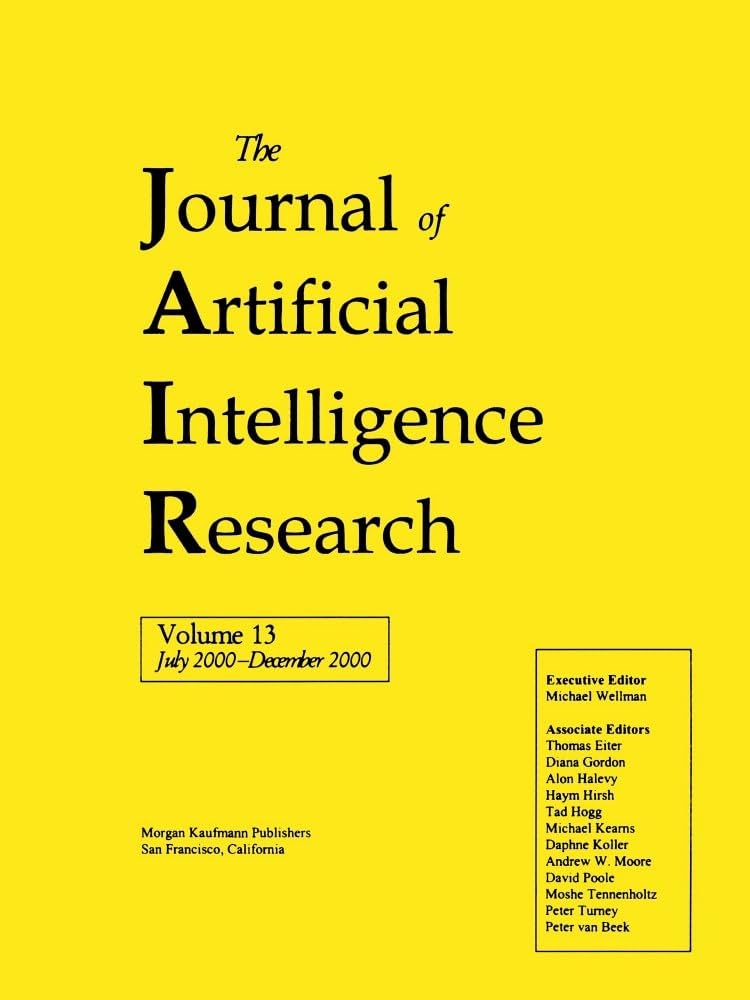广义规划的层次分解与终止分析
IF 4.5
3区 计算机科学
Q2 COMPUTER SCIENCE, ARTIFICIAL INTELLIGENCE
引用次数: 0
摘要
本文提出了一种分析和评价广义规划的新方法,它可以解决大量的相关规划问题。尽管综合和学习广义计划一直是人工智能的长期目标,但由于分析给定广义计划的范围和效用的方法存在根本差距,因此仍然具有挑战性。本文通过开发一个新的概念框架以及用于评估广义计划的终止和目标可达性相关性质的证明技术和算法过程来解决这些差距。我们以图论的经典结果为基础,将广义计划分解为更小的组件,然后用于派生分层终止参数。这些方法可用于确定给定广义计划的效用,以及指导广义计划的综合和学习过程。我们提出了理论和实证结果,说明了这种新方法的范围。我们的分析表明,这种方法显著地扩展了可以自动评估的广义计划的类别,从而减少了综合和学习可靠的广义计划的障碍。本文章由计算机程序翻译,如有差异,请以英文原文为准。
Hierarchical Decompositions and Termination Analysis for Generalized Planning
This paper presents new methods for analyzing and evaluating generalized plans that can solve broad classes of related planning problems. Although synthesis and learning of generalized plans has been a longstanding goal in AI, it remains challenging due to fundamental gaps in methods for analyzing the scope and utility of a given generalized plan. This paper addresses these gaps by developing a new conceptual framework along with proof techniques and algorithmic processes for assessing termination and goal-reachability related properties of generalized plans. We build upon classic results from graph theory to decompose generalized plans into smaller components that are then used to derive hierarchical termination arguments. These methods can be used to determine the utility of a given generalized plan, as well as to guide the synthesis and learning processes for generalized plans. We present theoretical as well as empirical results illustrating the scope of this new approach. Our analysis shows that this approach significantly extends the class of generalized plans that can be assessed automatically, thereby reducing barriers in the synthesis and learning of reliable generalized plans.
求助全文
通过发布文献求助,成功后即可免费获取论文全文。
去求助
来源期刊

Journal of Artificial Intelligence Research
工程技术-计算机:人工智能
CiteScore
9.60
自引率
4.00%
发文量
98
审稿时长
4 months
期刊介绍:
JAIR(ISSN 1076 - 9757) covers all areas of artificial intelligence (AI), publishing refereed research articles, survey articles, and technical notes. Established in 1993 as one of the first electronic scientific journals, JAIR is indexed by INSPEC, Science Citation Index, and MathSciNet. JAIR reviews papers within approximately three months of submission and publishes accepted articles on the internet immediately upon receiving the final versions. JAIR articles are published for free distribution on the internet by the AI Access Foundation, and for purchase in bound volumes by AAAI Press.
 求助内容:
求助内容: 应助结果提醒方式:
应助结果提醒方式:


